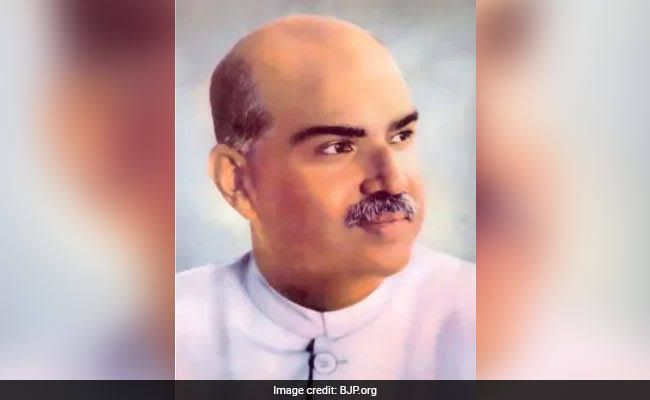Calcutta High Court dismisses plea seeking enquiry into death Shyama Prashad Mukherjee

The plea sought a categorical statement from the Union and West Bengal Governments as to whether Dr. Mukherjee’s death was a result of "Nehru Conspiracy".
The Calcutta High Court on Wednesday dismissed a petition seeking opening an enquiry commission to investigate into the death of Dr.Shyama Prashad Mukherjee. Advocates Smarajit Roy Chowdhury and Ajit Kumar Mishra had filed the petition.
The High Court bench consisting of Justice Rajesh Bindal, Chief Justicce (Acting) & Hon’ble Mr. Justice Rajarshi Bharadwaj, dismissed the petition and held that:
“A petition filed 70 years after the death of Dr. Syama Prasad Mukherjee, cannot be entertained for holding enquiry or appointment of a commission as neither the record therefor nor any person may be available who may throw any light on that. It may be merely an exercise in futile.”
The petitioner had contended that Dr. Mukherjee, was detained without trial by Sheikh Abdullah's government after his arrest in Kathua on May 11, 1953 and died on on June 23, 1953, whereas Government records claim Dr. Mukerjee died in the custody of Jammu and Kashmir Police.
He was provisionally diagnosed with a heart attack and shifted to a hospital but died a day later.
The petitioner claimed that “virtually nothing is known about the cause of the death of Mookerjee, and that the people have a right to know the cause unto his death.”
Markedly, the plea also seeks a categorical statement from the Union and West Bengal Governments as to whether Dr. Mukherjee’s death was a result of "Nehru Conspiracy" and demands for the Government of India’s stand on it.
The plea raised the following three basic questions:
1. Why was Dr. Shyama Prasad Mukherjee not arrestedbefore entering Kashmir? Is it because the Supreme Court has no jurisdiction over Jammu and Kashmir?
2. Why did Nehru never meet him while he was travelling in Jammu & Kashmir?
3. While Dr. Shyama Prasad Mukherjee was in detention why was no trial held by Sk. Abdulla's government and after his arrest in Katua on May 11, 1953 why was he never produced before the court?
According to Indian Express, on November 27, 1953, a resolution was moved in the West Bengal legislative assembly to hold an inquiry into the circumstances of his death while in detention in Kashmir. It argued for holding an inquiry through a commission headed by a Supreme Court judge. However, that move got lost in the bureaucratic quagmire and no formal enquiry was held into the death of Dr. Mukherjee.
Syama Prasad Mukherjee was an Indian politician, barrister and academician, who served as the Minister for Industry and Supply in Prime Minister Jawaharlal Nehru's cabinet. After falling out with Nehru, protesting against the Liaquat-Nehru Pact, Mukherjee resigned from Nehru's cabinet. With the help of the Rashtriya Swayamsevak Sangh, he founded the Bharatiya Jana Sangh, the predecessor to the Bharatiya Janata Party, in 1951.
Case Title: Smarajit Roy chowdhury And Another v. Union Of India
